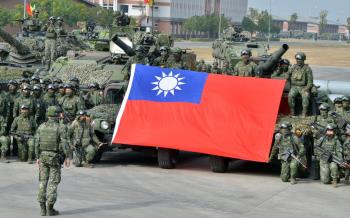Alwaght- AFP reported from Brussels the protest of Spain’s foreign minister, Jose Manuel Garcia-Margallo, at the cost of existing sanctions on many southern European countries that are already facing economic difficulties. “Sanctions have had a heavy cost for us all; the EU has so far lost €21 billion (£15.6bn). In Spain we have been badly hit in terms of agriculture and tourism,” Garcia Margallo said.
Although several European countries are leading an anti-sanctions camp including Czech Republic, Greece, Hungary, Italy, Luxembourg, Slovakia, Slovenia and Spain, British foreign minister still believes that pressure on Russia through sanctions can change its behavior. “We are delighted that there are negotiations and discussions going on but until we see Russia complying on the ground, withdrawing troops, closing the border, stopping the flow of weapons, we can’t relieve the pressure in any way,” Mr. Philip Hammond notes. British foreign minister adds, “We need to keep the pressure up until we see, not just words on paper, but deeds on the ground.”
Several governments and international organizations, led by the US and European Union imposed sanctions on Russian individuals and businesses in response to the Crimean crisis and the subsequent annexation of Crimea by the Russian Federation. The scope of the sanctions increased as the conflict expanded into other parts of southern and eastern Ukraine and escalated later on to the ongoing war in the Donbass region.
In response to European-international sanctions, the Russian foreign ministry published a list of reciprocal sanctions against certain American figures, and authorized an effective embargo for a one-year period on imports of most of the agricultural products from the US, EU, Norway, Canada and Australia. Due to Russian sanctions, European manufacturers are concerned about the export of their products.
Germany, the Netherlands and Ukraine were the main exporters of agricultural products to Russia last year. However, the countries of southern Europe, especially Spain and Greece, and due to their economic dependence on agriculture, have experienced the most damage because of the Russian sanctions.
According to EU diplomats, Europe’s foreign ministers have agreed last Monday on the sanctions, targeting 19 individual and nine “entities”, and postponed the date they are due enter in to force until 16 February.
Valdimir Putin had more than 18 hours of non-stop talks with Ukrainian President Petro Poroshenko, German Chancellor Angela Merkel and French leader Francois Hollande in the capital of Belorussia, Minsk. Putin declared that Ukraine's pro-independence achieved a ceasefire agreement with the government of their country.
On Friday, Poroshenko announced that Minsk’s deal over Ukraine’s crisis is promising, but there is no guarantee for the full implementation of its provisions.
The 13-point deal to resolve the conflict in East Ukraine was signed on Thursday during the negotiations between Russia, Ukraine, France and Germany in the capital of Belarus, Minsk.
According to the provisions of this Agreement, the cease-fire will be established on Sunday February 15 between the parties of the conflict in East Ukraine.
Meanwhile the Ukraine’s Right Sector leader Dmitry Yarosh announced on the social network Facebook that his radical movement rejects the Minsk peace deal and that their paramilitary units in eastern Ukraine will continue “active fighting" according to their "own plans." Yarosh claimed that any agreement with the eastern militia has no legal force.
In his statement, Yarosh claimed that that the Minsk deal is contrary to Ukraine’s constitution, so Ukrainian citizens are not obliged to abide by it. Thus if the army receives orders to cease military activity and withdraw heavy weaponry from the eastern regions, the Right Sector paramilitaries, who are also fighting there reserve the right to continue the war, he said.
The European Union became America’s puppet, and it drives the NATO according to the US government’s policies. Europe is losing heavily due to its sanctions on Russia, and the reciprocal Russian embargo of imports, such issues stall the growth rate of many EU countries.
On the other hand, Russia has various tools to use including the energy sector, which if employed can cause a substantial impact on the EU. The US government in intervening profoundly in the Ukrainian conflict, in order to restrain Russia and paralyze Europe.



























